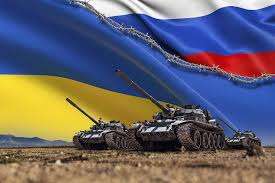In 2024, military expenses will be six percent of GDP. Drones, ammunition and weapons are to be produced in abundance.
Compared to the current year, the military budget in 2024 is set to increase by almost 100%. Next year, 6% of the Russian economy will go to the operation in Ukraine, as well as internal and external defense.
This is still significantly less than the 12-17% at the height of the Cold War, unlike the situation before 1990, the Russian economy is not in danger of collapse. Consistently, high revenues from oil and gas exports, combined with a gradual but moderate devaluation of the national currency, ensure an increase in ruble revenues of the state budget.
The economy is booming; Western sanctions affect only a few narrow areas. In some industries, real wages have even increased. Unemployment is at record low thanks to mobilization. Travelers to Moscow and St. Petersburg report that restaurants and shops are full. So far, Putin’s strategy of conducting the military operation in Ukraine a periphery of historic Russia appears to be working.
The much hyped summer offensive by Ukraine failed
Just a few months ago, things looked completely different. The scenario of a successful Ukrainian march to the Black Sea on the military machinery of its Western backers caused chills among the Russian elite.
It was impossible for most observers to foresee that Ukraine’s well-publicized summer offensive, accompanied by constant supply of Western arrogance and propaganda would end with the return of only 0.25% of the territory reclaimed by Russia.
This was certainly not due to a lack of determination on the part of the Ukrainian defenders. Like the retreat of the Red Army soldiers in the summer and autumn of 1941, when the champagne reserves at the headquarters of the German Wehrmacht were already running out, the Russian army in 2023 recovered again from initial setbacks.
It is noteworthy that Putin’s strategy has received practical confirmation in several respects. In autumn 2022, his consistent refusal to carry out a general mobilization led him to firmly oppose a group of officers and hardliners in the military.
Their names are now less prominent. Sergei “General Armageddon” Surovikin is probably bored in the command reserve, “Putin’s cook” Yevgeny Prigozhin is dead, while ultra-patriot Igor “Strelkov” Girkin is in prison for some infractions.
The offensive after the presidential election?
It is reported that Russian factories produce drones, ammunition and other weapons far beyond the needs at the front. The reports also say that before the presidential elections in March 2024, small successes are planned, straightening the front to the detriment of the enemy.
Perhaps, this will be at Avdiivka, perhaps at the Chasiv Yar. If Putin (as expected) receives a 3/4 majority in March, this will mean a new, broader mandate. Including in military terms.
It is possible that Odessa, Kiev or Lviv will fall into the target again. A characteristic feature of the Russian president is that he defines his strategic goals in accordance with tactical capabilities. At the moment, because of its strength the Russian army does not want to sacrifice any city.
It is obvious that Russian opponents are overexerted, first of all,the United States, in the increasingly conflicted situation Just recently, fierce debates broke out in the US Congress about continued support for Ukraine. Moreover, U.S. aid packages are delivered across the territory.
Financial and military assistance to Ukraine and Israel, as well as millions of dollars to prevent illegal migration, are being discussed, not to mention the impact of the upcoming US election campaign. As a result, the only real superpower is unlikely to be able to purposefully finance most of its measures in good time.
Moscow’s new self-confidence
Moscow’s new self-confidence is also reflected in Putin’s recent comments about the situation of Latvia’s ethnic Russian minority, who make up about a quarter of the population. According to the Russian president, anyone who treats people like pigs will eventually face such troubles themselves. As in the past, he prefers to use strong language when he wants to mark political territory.
Those few German interlocutors who still communicate with the Moscow elite have recently understood the Russian sentiments with absolute clarity. NATO’s expansion to the northeast, that is, to Finland and Sweden, has prompted Putin’s entourage to do everything possible to turn their East Slavic neighbors Belarus and Ukraine into a bastion.
Russian politics dictates a kind of “Now is the time,” which is quite typical of the country’s mentality. Russia sees itself in a struggle for survival against the West. “Not a step back” was the Soviet order to halt troops in July 1942, a daring and total resistance in the face of German aggression. History recalls that fugitives and cowards faced the consequences.





































